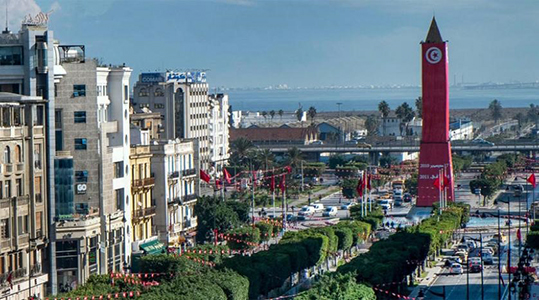Tunisian Minister of Economy and Finance Ali Al-Kali confirmed that "the state budget deficit will be in the range of 13.729 billion Tunisian dinars (about 4.9 billion dollars) by the end of the current year, which represents 13.4 percent of the gross domestic product, against expectations of a deficit in the range of 3 percent, which was drawn up in the Finance Act for the current year."
Al-Kali revealed the decline in state revenues, by about 6 billion dinars, pointing out that "the state structures were only able to provide collection resources that do not exceed 30 billion dinars, while initial expectations indicated that a collection of about 36 billion dinars was achieved, which requires research about filling this gap through a supplementary financial law."
The supplementary finance bill included a set of data that confirm the difficult economic situation in Tunisia, including the fact that the state of economic downturn and the decline of foreign and domestic investments have led to a decline in the state's resources in exchange for an increase in expenditures within the framework of exceptional measures with a social, financial and fiscal dimension. The Tunisian Minister of Economy and Finance stressed that “the state will work during this stage to increase the size of the current year’s budget by 9.5 percent, through what is included in the supplementary finance law. It is expected that 58 percent of the budget will be saved by adopting budget resources in the amount of 29.971 billion Dinars, while the rest of the estimated amount of 21.728 billion dinars will be saved by adopting treasury resources. Whereas the external and internal borrowing resources represent the largest part of the total amount.
Source (Al-Sharq Al-Awsat Newspaper, Edited)

